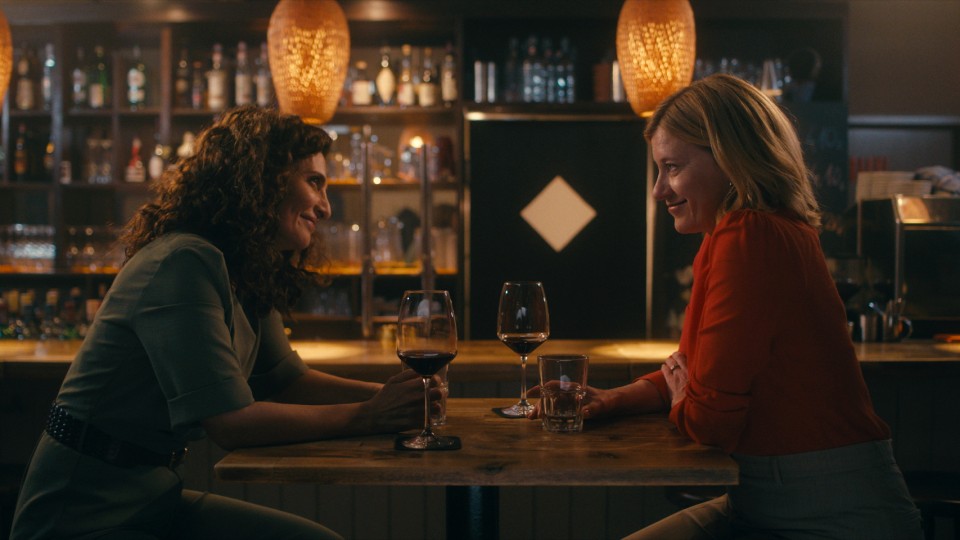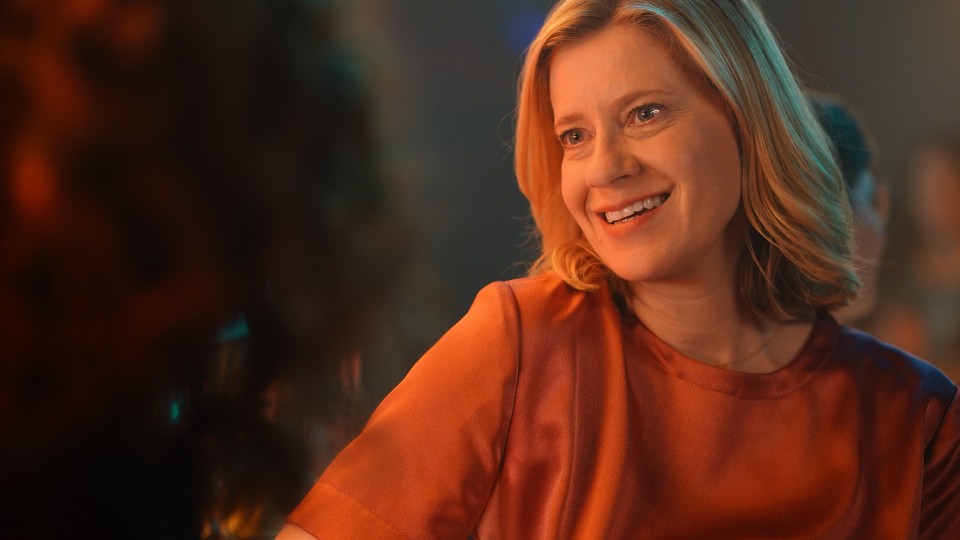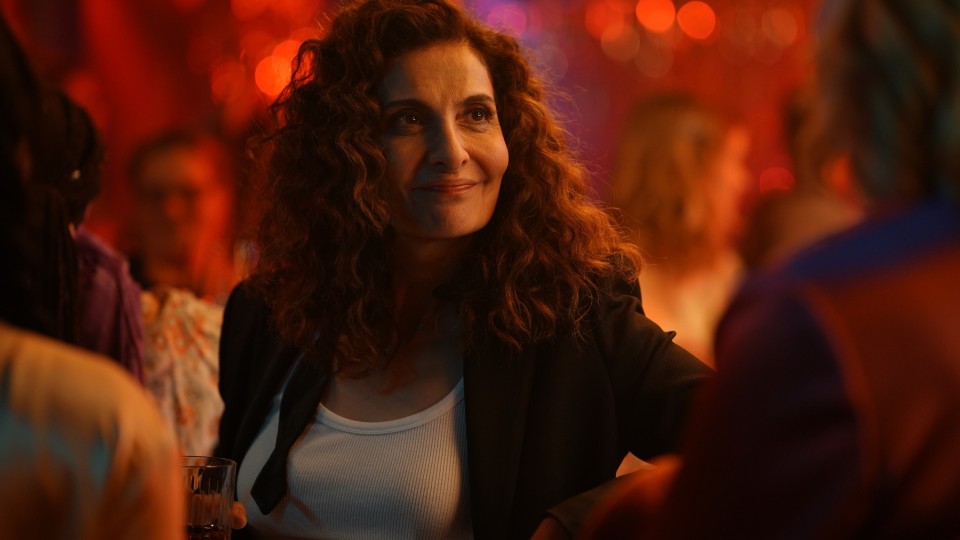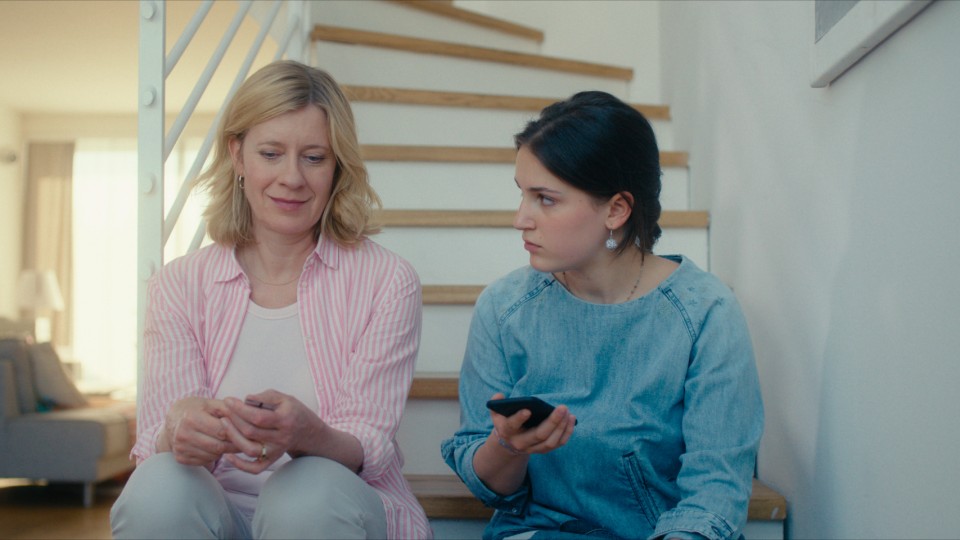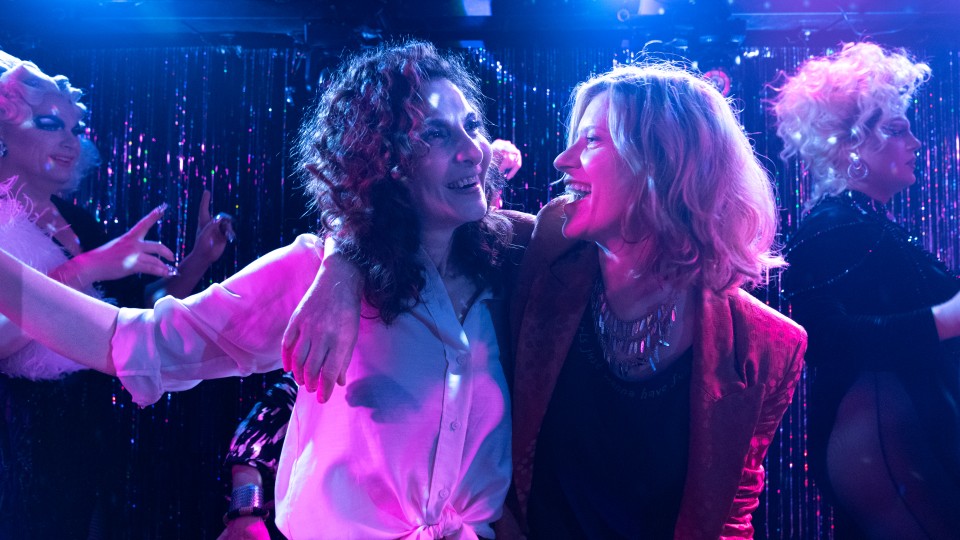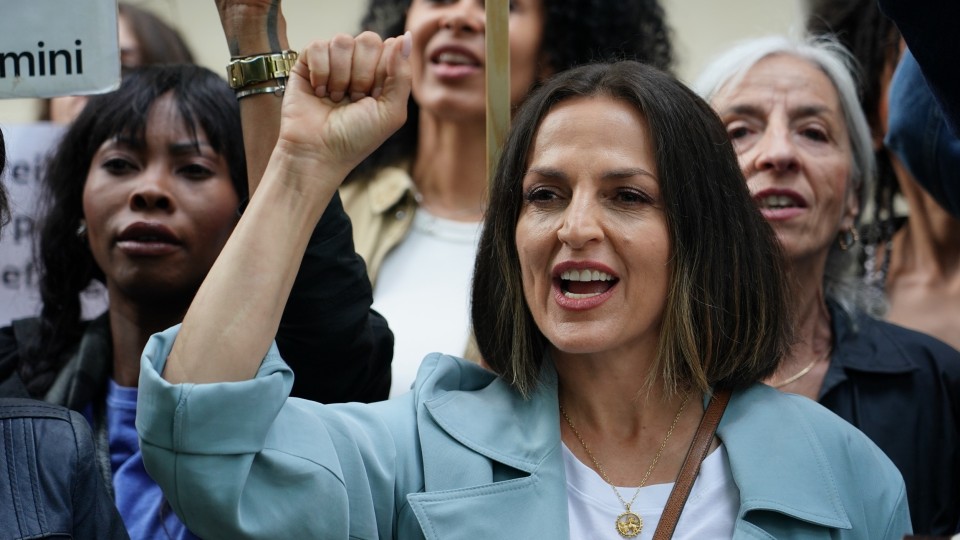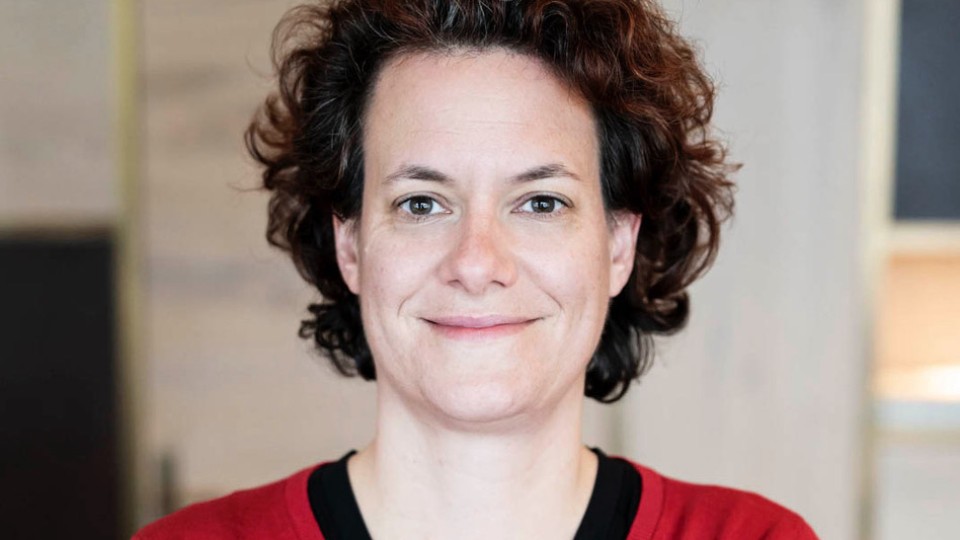The filmmaker Kat Rohrer has lived long enough in Vienna and New York to know that something is missing both here and there.
In Austria, it was the startlingly low visibility of queerness in narratives on screen, which provided her with a good reason
to do something about it. Her romantic comedy WHAT A FEELING is carried by the contrast between two families, the incomprehension between two women and the desire to admit, though briefly,
a world that is both happy and whole.
Is it about time a love story between two women was released in cinemas for the general public?
KAT ROHRER: Basically, I'm interested in the representation of queer stories, particularly love stories. You can find a lot of queer
love stories on streaming platforms, especially ones featuring young people. In WHAT A FEELING I have two protagonists who
are older than me, so I can identify with them better. There’s a lot of discussion about women over fifty getting few roles.
That's a shame, and it should be changed. I was also interested in telling a love story that ends well. There is too little
of that in queer film as well.
How is the theme of lesbian comedy perceived in Austria, when it comes to financing?
KAT ROHRER: I think the initial question, which loomed over everything, was: Will she manage to tell a queer love story in broad terms, for a wider audience? I'm sure we succeeded in that, because at the end of the day, it's a love story between two people. It so happens that they’re
two women, which doesn’t mean they’re categorically lesbians, just that they’ve fallen in love with each other. And you can
see in society that the strict formulation, the sort of "So what are you exactly?" attitude, is relaxing. I must sound like
I’m 105, but when I was younger, you had to identify yourself definitively: Are you lesbian, gay or straight? These days,
there is much more openness about this fluid area.
Representation is one aspect. Were the overarching themes of otherness, self-acceptance and belonging also close to your heart?
KAT ROHRER: Yes. Especially in Austrian society, where people are still very stuck in the old structures and very preoccupied with the
question: What does society say about this? It’s not necessarily just about queerness. I think it's so important to liberate
yourself, live your best possible life and be happy, even if that doesn't suit everyone.
You take the title from What a Feeling, the song from Flashdance. Sometimes a song alone can provide the impetus for a story. Was that the case with your film?
KAT ROHRER: To tell the truth, no. It was just by chance. When I wrote the first treatment, I thought: we have a character here who’s
a bit uptight, who’s drunk a little too much because her bourgeois world is collapsing, and she's in her fifties. So I asked
myself what song would make her want to let go and dance at last. And I came up with What A Feeling. I can't say it's my all-time favorite song. But it became increasingly crucial to the film. Much later, when I listened to
the lyrics closely, I discovered that they fit the film really well. There was a lot of coincidence involved; apparently it
was an unconscious choice.
You’ve had double socialization: after growing up in Vienna, you lived in the USA for a very long time. Your take on Vienna
is from the inside and from the outside, at the same time. Which Vienna did you also want to make fun?
KAT ROHRER: The film is my grumpy declaration of love for Vienna. Vienna is a beautiful city; sometimes I have a hard time with the grumpy
people, but on the other hand I love the grumpy waiter here in this café. I wanted to make fun of the gossip, the stiffness
and the conservatism. Everyone always has an opinion about everyone else. The best example are Marie-Theres's two women friends,
who are always super friendly but bitch about her behind her back – and don't see anything wrong with that. They ‘show’ their
love by putting her down. They don't really mean it in a nasty way; that’s just what you do.
There is also a counter-world: the extended Persian family. How did it come about that your "contrast family" is part of the
Iranian community?
KAT ROHRER: My friendship with Proschat Madani was instrumental there. We’ve been best friends for over twenty years. I know her family
very well. I would have had a hard time writing about something I didn't know.
Family per se is a central theme, and a source of comedy. What were you basically trying to say about families?
KAT ROHRER: Family is important to all of us, but at the same time it can be very restrictive. Often you don't trust the people closest
to you to tell the truth. Another subject that comes up between Fa's mother and sister is aging. We all have to deal with
that sooner or later, as our parents get older. I know many mothers who resemble Fa's mother, very domineering. My family
is full of women like that. We can all identify with the situation when the mother says: "Why are you wearing that? Can't
you dress better?" These family dynamics are very familiar, whether they are Persian or Austrian.
You portray three generations and also raise socially relevant topics: #MeToo, young people’s commitment to the ecology and
anti-capitalism, work-life balance, diversity... How did you try to create a snapshot of society with few resources?
KAT ROHRER: Developing the script was a long and very important process. I wanted to depict the different generations, especially in
the context of their relationship to queerness. Each generation has a different mode of understanding and acceptance. For
people like Bigi, who runs the bar in the film and is now in her sixties, this was a very different subject than it is for
today's twenty-year-olds. And for Fa's mother, it's an even bigger issue. What mattered to me was a core narrative, and on
top of that, presenting the different worlds. We live in a diverse world; I have nieces who are in their twenties, I'm in
my early forties, and I see other worlds coming up. They get involved, they criticize, and an exciting dialogue ensues. Although
you have to bear in mind that they’re like Anna, Marie-Theres' daughter, speaking from their own comfort zone, where their
existence is not in jeopardy.
How did you experience working with the actors on this, your first feature-length film?
KAT ROHRER: Working on a set, and especially working with actors, is what I enjoy the most. I’m completely in my element there. I grew up with an actress in my immediate surroundings, my aunt, which helped me to understand the situation quite well. I felt it was important to create a safe space, especially for the
love scenes. And the question of which crew members were present on set was crucial, too. The interaction was particularly
respectful, and that atmosphere created the safe space. What I would really like to emphasize, as a positive experience on
this first feature film, was the great teamwork. I would make another film with each and every one of them. The team really
grew together as a family during the six weeks of filming, because we all put our heart and soul into it.
In terms of the casting, everything fell into place very nicely. The only difficulty was casting the Persian mother, because
there aren’t any professional Persian actresses in Austria of that age. Most people of that generation were refugees who had
to feed their families. We were lucky enough to find Gohar Nurbachsch in Vienna. It was important for us to make Gohar feel
at home for the filming, as she had never been on a set before. Proschat, Anton and Nicole, who play her children, worked
out the attitudes their characters have to the mother. We spent two days on that, and then they behaved just like a family,
especially the siblings, and everyone took care of Gohar. I'm very proud of that. It was really nice to create this Persian
world.
You not only lived in the USA for a long time; you also completed your film training there. What did you do there as regards
making films, and what did you bring with you to Austria?
KAT ROHRER: I studied at the School of Visual Arts in New York. It’s a very practice-oriented school, providing a very broad education.
You have to make a short film every semester and also help your colleagues in different positions. Since I was good at sound
and assistant camera work, I got my first jobs right after graduation. I worked for virtually no pay, but I went from one
job as assistant camera to the next and got a lot of important experience. I always wanted to work directly on set, to learn
from the directors and understand the technique. When my first feature-length documentary came out, nobody wanted to hire
me anymore, because suddenly I was regarded as a director. Apart from make-up and costume, I've taken every position on set
at some point, so I have an understanding of what a department needs, and I can realistically assess how you can still get
the best out of a film when you're on a budget.
Was it your goal from the beginning to put a crowd-pleaser on the big screen?
KAT ROHRER: Yes. When I started working on WHAT A FEELING, it was the pandemic, I was going through a breakup in my private life; it
was all terrible. That's why I wanted a romantic comedy. I wanted an ideal, better world, with social ambitions. I couldn't
tell a funny story without proper context, but I wanted people to walk out of the cinema dancing happily. That was also the
first time I realized how much I miss representation on the screen in Austria. I didn't notice that so much in the US. When
I sat here during the pandemic, watching Austrian television of course, I noticed that there was nothing I could relate to
personally. It was only when I lived here in Vienna again, found my way back in and expanded my circle of friends, that I
became aware of the difference. When I go to parties with my friends from childhood, and I'm the only queer person around,
it makes me feel like an outsider. Someone my age, not in a relationship just now, not married, without children and being
queer; everyone finds that very exciting. It wasn't an issue in New York; the most interesting thing about me there was that
I came from Austria. Nobody was interested in my love life.
Interview: Karin Schiefer
February 2024
Translation: Charles Osborne

